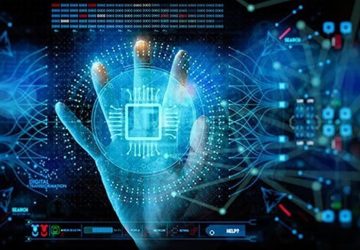Artificial Intelligence (AI)
Artificial intelligence epitomizes the development of machines that can undertake tasks usually requiring human cognition. AI is poised to revolutionize sectors including healthcare, finance, and transportation by enhancing automation, improving data analytics, and offering more personalized services.
Internet of Things (IoT)
The Internet of Things describes a web of devices and items interconnected and exchanging data. IoT equips everyday objects with sensors for internet connectivity, allowing for communication and interaction. This fosters significant enhancements in efficiency and safety, and it underpins the development of intelligent urban ecosystems.
Blockchain
A disruptive force in ledger technology, blockchain facilitates secure, transparent transactions through a decentralized, distributed network. This technology is drawing attention for its potential to redefine finance, supply chain management, and healthcare, enhancing transparency, tracibility, and the security of information exchange and transactions.
Virtual and Augmented Reality (VR/AR)
VR and AR enable users to dive into digital surroundings or superimpose computer-generated data onto the real world. These technologies are altering gaming, entertainment, education, and training, offering immersive experiences, interactive learning, and innovation in sectors like building design and travel.
5G Technology
5G, the fifth-generation wireless standard, is set to offer faster, more reliable internet connections, facilitating high data transfer speeds, low latency, and expanded network capacity. The broad adoption of 5G technology will drive progress in self-driving vehicles, smart cities, remote medical procedures, and IoT implementations.
Genomic Editing
Techniques like CRISPR-Cas9 give scientists the ability to alter DNA with precision, paving the way for transformative healthcare advancements, including targeted gene therapies and remedies for genetic disorders.
Quantum Computing
Leveraging quantum mechanics, quantum computing can perform complex calculations far quicker than current computers. This emerging field has the capacity to change the game in cryptography, drug development, solving optimization issues, and modeling climate changes.
Renewable Energy Technologies
Renewable energy forms, particularly solar, wind, and geothermal, are progressing rapidly and are increasingly economical. These clean energy sources aim to substantially cut greenhouse gas emissions, tackle climate change, and offer sustainable energy alternatives.
Autonomous Vehicles
Self-driving cars stand to revolutionize transport through improved road safety, diminished traffic bottlenecks, and better efficiency. As AI and sensor technology progress, autonomous vehicles inch closer to mainstream reality, promising to alter travel significantly.
Biotechnology and Bioengineering
This field covers a spectrum of technologies that utilize living systems and organisms to develop novel materials, treatments, and solutions. It holds considerable potential to transform healthcare, agriculture, environmental sustainability, and food production.
These technologies are merely the tip of the iceberg regarding future transformative potential. Continual evolution and refinement promise to reshape industries, propel innovation, and meet vital global challenges. Careful monitoring of these technologies is crucial as they are set to have significant impacts on society and the world in the years ahead. However, responsible development and application are also paramount, ensuring considerations of ethics, privacy, and proper usage are taken into account. By staying informed and embracing these advances, we can proactively contribute to shaping a future that exploits technology for societal benefit.









